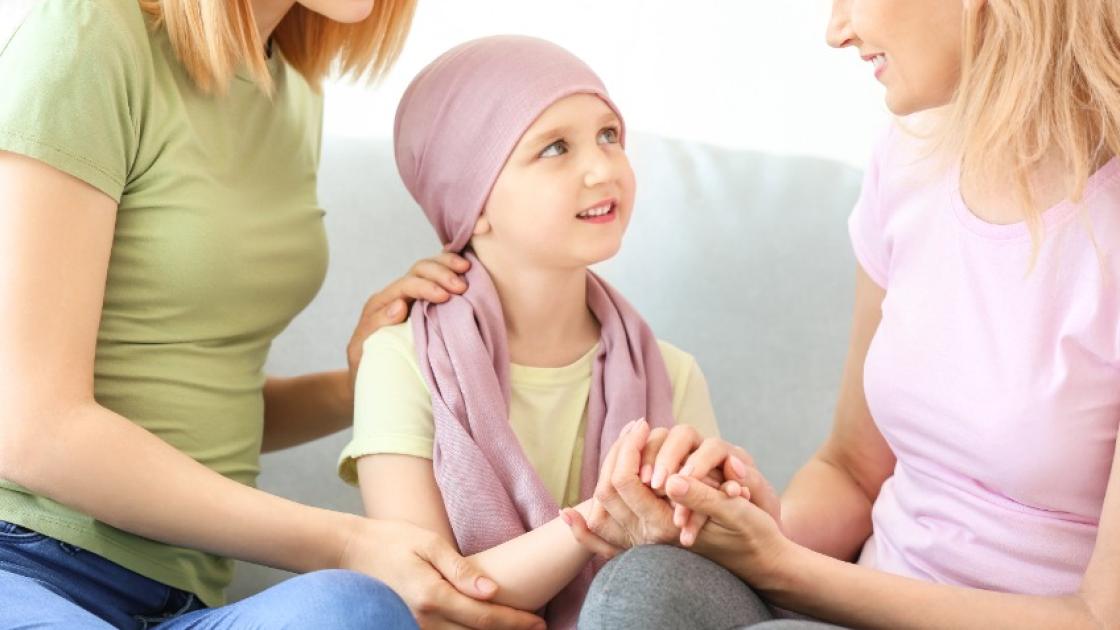
5 things a pediatric oncologist wants you to know
Hearing the word "cancer" is an unnerving experience, especially if it's your child receiving the diagnosis. But as frightening as pediatric cancer can be, there are plenty of reasons to be hopeful.
If you're a parent or caregiver of a young child, here are five things our pediatric oncology team wants you to know.
1. Pediatric cancer care continues to improve
According to the American Cancer Society, the overall rate of childhood cancer has increased slightly over the past few decades. At the same time, a child's overall chance of cancer survival has been increasing, too.
Today, nearly 9 of 10 children with pediatric cancer in the United States will still be alive five years or more after their diagnosis. That's up from fewer than 6 out of 10 children back in the 1970s. This increasing survival rate is largely due to some impressive advances in diagnostic, therapeutic and preventive interventions.
Each individual child's likelihood of survival will vary depending on factors unique to them, including the type of cancer they have.
2. Pediatric cancer treatment are often challenging
Pediatric cancer treatments like radiation and chemotherapy can be truly life-saving, but are also physically and emotionally difficult. As a parent, it's helpful to have clear expectations about what your child's treatment will entail so that you can help them (and yourself) feel more comfortable and prepared.
As area leaders in pediatric cancer care and research, our team at SIU Medicine would be happy to work with your child and family as you navigate a cancer diagnosis together. We strongly encourage all parents to reach out to your child's health care team with questions—all questions, any questions and at any time!
We are here to help in any way we can and committed to helping you stay well-informed as the primary decision-maker for your child's health.
3. There are (sometimes) warning signs and symptoms of cancer in kids
Childhood cancers can be difficult to recognize early on and childhood cancer is not routinely screened for. That said, we encourage you to trust your instincts as a caregiver and never hesitate to talk to a health care provider if you have concerns about your child's health.
Some possible signs and symptoms of pediatric cancer include:
- Unusual lumps, bumps, or swollen areas
- Unusual limping
- Persistent pain in one area of the body
- Easy bruising or bleeding
- Decreased energy
- Unusual paleness
- Unexplained or recurring fever or illness
- Recurring headaches, sometimes with vomiting
- Sudden or unusual changes in vision
- Unexplained weight loss
4. There are things you can do to protect your children
Most pediatric cancers are not preventable and do not have any underlying cause. Even so, there are things you can do that may reduce your child's risk and improve their overall health. This includes:
- Getting enough folic acid during pregnancy to boost brain development
- Avoiding exposure to toxins like alcohol and tobacco during pregnancy
- Protecting your children from excess sun exposure (use sunscreen, hats, sunglasses and lightly layered clothing)
- Ensuring your children are physically active, maintain a healthy weight and eat a balanced diet with plenty of whole foods
- Doing what you can to reduce your child's exposure to environmental toxins, including secondhand smoke and pollution
- Creating a safe, supportive and stable home environment
- Keeping up with routine well child care with your child’s pediatrician
- Getting your child vaccinated for HPV, which prevents cancer developing as an adult
5. Seek support sooner than later
As a parent or caregiver of a child with cancer, please know that you will not handle this situation alone. In fact, we know from years of research that family members of children with cancer often experience increased rates of psychological, physical and social challenges, ranging from depression to marital problems.
At SIU Medicine, we encourage family members of children with cancer to seek help as soon as possible—doing so will benefit you and may even improve your child's health outcomes! We're happy to connect you with professional counseling, support groups and other resources that can help you and loved ones manage and cope with the understandable stresses of a childhood cancer diagnosis.
Has your child been diagnosed with pediatric cancer?
Contact SIU Medicine today to find a doctor who can help you navigate your family's health challenges with greater peace of mind.




